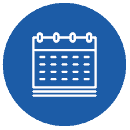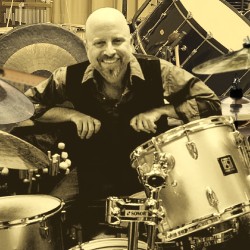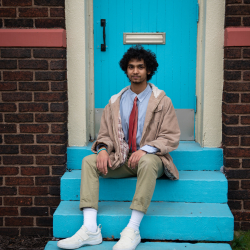Drums Lessons In The Comfort Of Your Home
- No fighting traffic, we come to you!
- Lessons offered 9am-9pm, 7 days a week
- Experienced, knowledgeable, passionate teachers
- Lessons for all ages and skill levels
- 30-60 minutes sessions
- Your availability is our priority
- Free recitals
You know it’s time to get the children started with in-home private music lessons. Maybe the lessons are for you, how about the whole family? You’re smart enough to know that music lessons are important but what about finding a teacher? Do you call a music store? Will their teacher be right for you? Then there’s the getting there; the traffic, hauling the kids back and forth, what about dinner? Yeah – Right! Like that’s going to happen. You don’t need lessons with just any ol’ teacher, especially a task master, intimidating, practice demanding monster that bores students. What you’re looking for is an engaged, fun, well-educated, motivational, big smiling and super excited personality that loves teaching Music. A teacher who makes lessons fun. You already know what you need. You need Lessons in Your Home-the music teachers who come to your home or school to teach fun, private music lessons. Their teachers constantly think of great ways to motivate every student. They turn students into dazzling musicians ready to break out a song and share their talents with the world. Now you’re saying “Hey, this could work” Lessons in your Home teaches piano, Drums, voice, violin, in fact they teach every music instrument you could think of. Getting started is as easy as 1,2,3.
- Give Lessons in your home a call or email
- They’ll ask important questions about each student ensuring a teacher that’s best for you
- Schedule and start your lessons. What are you waiting for? Start Lessons now with Lessons in Your Home!
Get Private Drums Lessons Across the Nation With Our Drums Teachers
At Lessons In Your Home, we are proud to offer expert instruction to budding musicians across the nation. Our highly skilled Drums teachers specialize in nurturing young talent, providing lessons that are tailored to each child’s unique learning style and musical interests. Whether your child is picking up a Drums for the first time or looking to enhance their skills, our instructors are passionate about creating a supportive and engaging learning environment. With us, your child’s musical journey is in expert hands, ensuring they not only learn, but also love every strum along the way.
When you call Lessons In Your Home…
1

After answering any questions you might have, we’ll pair you with a local teacher that best matches your age, schedule, skill level, and goals.
2

… and then we’ll schedule your first month of lessons!
3

First Lesson Guarantee — If you don’t LOVE your first lesson we can pair you with a teacher that better fits your situation. Or you can even cancel and pay us nothing.
Why Should A Student Take Drums Lessons?
Embarking on Drums lessons at Lessons In Your Home is more than just learning notes and melodies; it’s diving into a world where creativity meets expression in one of the most accessible and influential musical forms. Drums lessons offer a dynamic platform for students to express themselves, harness their creativity, and gain confidence in their musical abilities. Each practice session provides not only a step closer to mastering their craft but also strengthens cognitive skills, enhances coordination, and boosts self-confidence.
The Drums is uniquely versatile, resonating across countless genres such as rock, blues, pop, and folk, making it an instrument—or form of expression—that adapts to any student’s musical tastes and aspirations. Students learn to navigate diverse musical landscapes, which enriches their understanding of music and broadens their cultural appreciation. Moreover, learning the Drums can be a profound way to connect with others, providing a common language that transcends words.
Our Drums lessons are designed with the student’s personal growth in mind. Our experienced instructors are committed to crafting engaging, customized lesson plans that motivate and inspire. Whether the goal is to perform at a gathering, join an ensemble, or simply enjoy private moments of musical creativity, Drums lessons at Lessons In Your Home pave the way for a fulfilling and lifelong musical journey.
Drums Lessons Tailored for Kids
At Lessons In Your Home, we specialize in making Drums lessons for kids not just educational, but a total blast. Our core belief is that learning an instrument—or voice—should be fun, engaging, and an essential part of developing a child’s creative expression and personality. We recognize that each child is unique, and that’s why our lessons are custom-designed to fit individual interests and learning styles. From rock to pop, from blues to folk, our instructors tailor the content to include music genres that resonate and excite our students, ensuring they stay passionate and motivated.
Our teaching approach is crafted to be light-hearted and enjoyable. We begin with simple techniques and quickly progress to performing full songs, enabling children to see their improvements and maintain excitement about their musical journey. This method not only keeps the lessons enjoyable but also lays a solid foundation for musical skill and personal confidence. For children eager to show off their newfound talents, we provide opportunities to perform in recitals and other events, giving them a platform to shine and experience the excitement of live performance.
Understanding the hectic schedules of modern families, we prioritize convenience without compromising the quality of our music education. Our instructors come directly to your home, eliminating the need for you to deal with traffic or scheduling conflicts. We align our sessions with your family’s routine, ensuring that your child’s music education integrates smoothly into your daily life. This commitment to accommodating family needs makes our Drums lessons a harmonious addition to your child’s development, both as a musician and as a thriving young individual.
Benefits of Drums Lessons for Students
Drums lessons offer far more than just musical skills; they provide a gateway to personal development and self-expression that can shape a child’s life. At Lessons In Your Home, we’ve witnessed firsthand how learning the Drums can empower young minds, fostering a belief in themselves that they can achieve anything they set their minds to. This confidence, born in music lessons, often carries through to all areas of their lives, helping them to face challenges with resilience and determination.
Drums Develops Coordination & Cognition
For many children, the Drums is not only an instrument or artistic outlet but a tool for growth. As they learn to synchronize their playing with rhythm and technique, they enhance their sensory motor skills, timing, and musical awareness. This coordination is crucial, not just for music, but for developing cognitive abilities that aid in all academic areas. The act of reading music and translating it into movement—whether with fingers, hands, or breath—activates diverse parts of the brain, improving focus and critical thinking skills. This cognitive stimulation is wrapped in the joy of music, making it a pleasurable and enriching experience.
Practicing Drums Helps with Creativity & Expression
Drums lessons are a canvas for creative expression. They allow students to convey emotions and tell their stories through music, whether they’re learning their first song or composing original material. This artistic outlet is vital for emotional health and develops a sense of identity and personal voice. As students perform and share their music, they gain confidence and self-esteem. Our instructors nurture this process, guiding each student to find their unique sound in a supportive and encouraging environment.
The Transformative Impact of Music
There’s a transformative power in music that has been part of Lessons In Your Home’s story from the beginning. We believe that learning the Drums—or any musical practice—is not just about acquiring a skill but about opening doors to new possibilities. A personal story from our community involves a young student who, through Drums lessons, overcame shyness and learned to stand confidently on stage, a skill that translated into public speaking and leadership in school. Such stories are common in our experience, highlighting how Drums lessons can be a cornerstone for lifelong confidence and success.
Encourage your child to pursue the Drums, and watch as they develop not only musically but in their entire outlook on what they can achieve. Let’s make the world a more harmonious place, one Drums lesson at a time.
What Do You Need for Your First Drums Lesson?
Here’s what you’ll need to get off to a great start. First and foremost, you’ll need a Drums-appropriate setup. While any basic equipment or space for practicing will do, the choice of style or model is entirely up to you—whether it’s a traditional instrument, microphone, or a digital alternative.
Don’t worry about sheet music or lesson books; our teachers will bring all the necessary educational materials to your lesson. However, one often-overlooked item is a music stand. A good music stand will hold your music at eye level, making it easier to read while you play or sing, and keeping your materials neatly organized. With these items in hand, you’re all set for a successful first Drums lesson. Let the music begin!
Get Started Today with Drums Lessons!
Kickstart your child’s Drums journey right from the comfort of your own home with Lessons In Your Home. We’re passionate about delivering Drums lessons that are not only convenient but also deeply engaging and perfectly suited to your child’s individual style and pace. Our home-based lessons mean no travel hassles and a seamless fit into your daily schedule, allowing your child to learn in the familiar and relaxed environment of your home.
Is your child excited to explore the world of Drums? Reach out to us now to book their first lesson. Our dedicated team is eager to connect your child with an instructor who will inspire and guide them every step of the way. Let’s transform your living room into a stage for musical growth and discovery!
Drums Lesson FAQs
Learning Drums is great for all ages, and a person can start as young as 4 years old. While you can start that young, it’s important to contact us about the size and stringed type of Drums you intend for your child to learn on. The Drums can come in scaled sizes for students of younger ages. Typical sizes include 1/2 scale, best for students 4-7, 3/4 scale, best for students 8-11, and full sized which works well for most students 12 years old and up.
You can technically learn on either. It really depends on what your goals and desires are for learning Drums. In general, learning on an acoustic is more “foundational” for understanding the Drums as a whole. Young learners will also develop more finger strength on an acoustic, which will make switching to electric much easier. But if your child has a natural inclination to electric Drums, start them out on that!
Besides the Drums itself, there’s not a whole lot more you need. We’d recommend having these things to improve and speed up learning:
- Proper Accessories – Depending on your instrument, you may need items like picks, mallets, bows, or reeds. These tools help you play correctly and comfortably.
- Strap or Support – If your instrument is played while standing, a strap or support can make playing easier and more comfortable.
- Extra Supplies – Some instruments require regular maintenance, such as spare strings, extra reeds, or replacement drumsticks. Having backups ensures uninterrupted practice.
- Tuner – Keeping your Drums in tune is essential for good sound quality. Some instruments need regular tuning, so having a tuner or tuning app can be very helpful.
- Metronome – While not required, a metronome helps you develop a strong sense of rhythm, which is crucial when playing alone or with other musicians. Many free apps are available for this.
- Cleaning & Maintenance Items – Regular cleaning and maintenance can keep your Drums in great condition. Cloths, lubricants, and cleaning tools may be useful depending on your instrument.
When in doubt, ask your Drums teacher! They’ll help you guide you in what you need to be successful.
Sore fingers when first learning Drums is completely normal. Don’t worry; as you practice more, muscle strength in your forearm and calluses on your fingers will develop. The pain will go away pretty quickly in time. If necessary, there are some ways to lessen the pain when practicing such as using lighter strings. Ask your Drums teacher about this if you’re dealing with pain!
Any practice is better than no practice. In fact, there is no magic number of minutes because we teach that consistency is the key to success. We’d rather our students play for 10 minutes a day daily rather than 60 minutes in one sitting in a week. One of the benefits of private lessons is that our teachers will give recommendations to your practice time and habits based on your child’s learning style. There’s a lot to consider on an individual student level for how much time should be spent practicing.
You don’t have to read sheet music to start learning Drums! Long term, our goal for our students is to help them be independent as musicians. Reading sheet music, or learning the ability to learn a piece of new music, is foundational to that goal.
When you learn an instrument in the right way, you’re not going to want to stop learning. That’s the best part of having a professional private music teacher! With that in mind, students are able to play songs from the first few lessons. But remember, even the “greats” are still learning. Eric Clapton famously refers to himself as still learning and trying to get better at the Drums, so there’s always room for learning and improvement.
- Accordion
- Band Orchestra
- Banjo
- Baritone
- Bass
- Bass Guitar
- Bassoon
- Brass
- Cello
- Chorus
- Clarinet
- Composition
- Drums
- Euphonium
- Fiddle
- Flute
- French Horn
- Guitar
- Harmonica
- Horns
- Little Music Makers
- Mandolin
- Mellophone
- Music Education
- Music In Your School Specialist
- Music Production
- Music Theory
- Music Therapy
- Oboe
- Organ
- Percussion
- Piano
- Recorder
- Saxophone
- Singing
- Strings
- Trombone
- Trumpet
- Tuba
- Ukulele
- Viola
- Violin
- Voice
- Woodwinds










